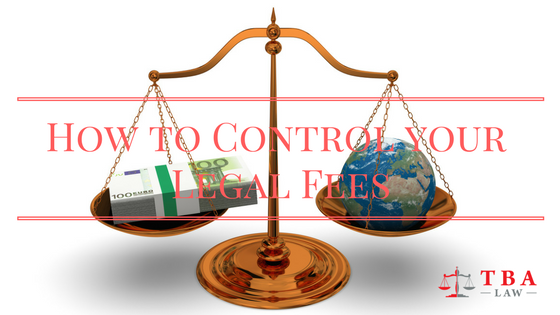How to Control Your Legal Fees
by Lajita Allan-Agnew
Depending on who you talk to, legal experiences can range from horror stories to feel-good movies. The genre of your legal experience as well as the reality of legal fees is however, to a large extent, within your control.
Is there an alternative to going to a lawyer such as mediation?
Mediation can be used to facilitate negotiated settlements with the assistance of a neutral third-party mediator. This allows the parties to control the decision-making process. Mediation is not a fix-all remedy; for example, it will not be appropriate for those matters where time is of the essence and or for matters that involve violence or risk to a child.

After mediation, you are still likely to need to have a lawyer formalise the agreement that you reach, to make it legally binding.
Find a Lawyer with a Good Bedside Manner
It is important to assess your lawyer’s bedside manner on your first meeting, just like you would when ‘shopping’ for a doctor. That’s not to say that a good personality is enough, or that your lawyer is your best friend. A lawyer’s credentials and reputation is paramount, but you must also be able to instruct them according to your needs and you should be comfortable with their guidance. A good relationship with your lawyer will make you comfortable enough to relay what is a priority for you and on the flip side, your lawyer will be able to guide and advise you without causing you anxiety, stress or offence. It then leaves time for concentrating on the issue at hand.
Diagnosis and Prognosis
Everyone is an expert … and Google has a lot to say. A lot of advice is not necessarily the correct advice. It is important to obtain the right legal advice about your matter so that you are aware of your rights and obligations. For example, if you have issues regarding a parenting matter, consult a lawyer that is experienced in Family Law. Once you have an accurate and reliable diagnosis, a prudent prognosis is sure to follow. You must by now be equipped with the best course of action that will be unique to you and your counterpart i.e. an agreement at the outset of a matter is ideal for some parties and not appropriate for others.
The Value of Respectful Communications
‘An ounce of honey attracts more flies than a ton of vinegar’. You can be succinct and firm about what you wish to achieve but good manners and form will allow your wants and needs to be received better than if you relay them with emotion and ambiguity. Compromise can be reached easily when parties realise that they have different hierarchy of needs and wants, i.e. what is important to you may be what the other person is willing to compromise on and vice versa. Above all, be mindful that the legal system will not tolerate vindictiveness and retaliation.
Remember! Traits such as being reasonable and communicative have a direct correlation to the amount of time that your lawyer will intervene and act on your behalf and the flow on effect of your lawyers’ fees. Clear communication will reduce your legal fees!
The Role of Your Lawyer – Advocate or Therapist?
Your lawyer should have a good bedside manner but his or her role is to serve as your advocate and be a source for legal advice. They are not to be confused with counsellors, best friends or therapists. Hourly rates for professional counselling are significantly less than hourly legal fees and are often covered by extended health plans. Even if you don’t have extended health benefits, it is more cost effective to discuss the emotional aspects of your case with a psychologist or other counselling professional than with your lawyer.





Leave A Comment